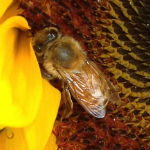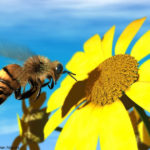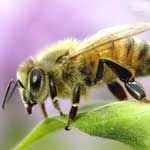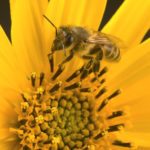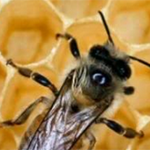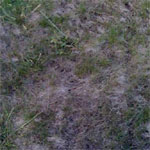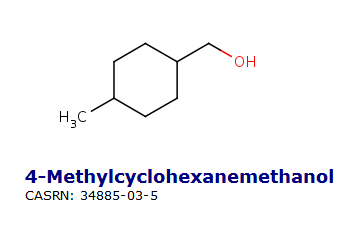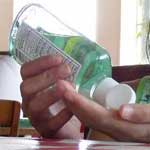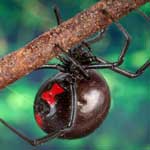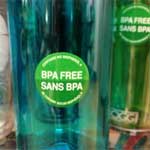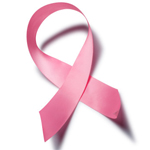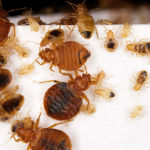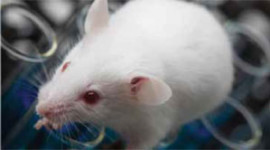"Beware 'Eco-Friendly' Christmas Gifts that Are No Such Thing," By Angela Logomasini, Ph.D. If you are looking to find some eco-friendly holiday gifts and decorations this year, be careful what advice you follow. Intentional or not, many suggestions about “eco-friendly” products are faulty because they are driven more by political preferences than scientific realities. In the words of Austrian economist Ludwig von Mises, there’s an “anti-capitalist mentality” among people on the Left, … [Read more...]
Children’s Environmental Health Grants Fund Junk Science
"Federal Children's Environmental Health Grants Used to Peddle Junk Science," By Angela Logomasini, Ph.D For more than two decades, the federal government has doled out millions of dollars to fund university-based “children’s environmental health centers.” These centers operate under the guise of objectivity, but they are far from objective. They are instead part of a web of left-leaning environmental activist organizations that have long misused taxpayer funds to peddle junk science, leading … [Read more...]
Truth about Plastic Straws
"The Truth about Plastic Straws," By Angela Logomasini, Ph.D. President Trump’s campaign has raised nearly half a million dollars in a matter of weeks selling plastic straws with “Trump” emblazed on each one. They fetch $15 for a package of 10 plastic straws, as the campaign markets them with the slogan: “Liberal paper straws don’t work.” That’s surely a high price tag for plastic straws, but the message is priceless. For the past couple years, the Left has been pushing plastic straw bans in … [Read more...]
TSCA Consensus May Prove Toxic
"TSCA 'Reform': Consensus May Again Prove Toxic," By Angela Logomasini. According to a story in Bloomberg BNA, a final vote on legislation to reform the nation’s chemical law—the Toxic Substances Control Act—may be imminent. The story quotes Senator James Inhofe (R-Okla.), who explained at a congressional hearing the other day, “It looks like now we’re [the U.S. Senate Environment and Public Works Committee] just a matter of hopefully hours away of having an agreement with the House.” The … [Read more...]
Alarmism, not Science, Guides Debate on Flame Retardants
"Outdated Science And Alarmism Drives Flame Retardant Debate," By Angela Logomasini. Learning from history should keep us from repeating our mistakes. Yet when it comes to environmental politics, the opposite seems to be true. History and improved scientific understanding fail to inform, while alarmism and irrational fears drive policy. The current debate related to flame retardant chemicals is a prime example. Environmental activist groups have petitioned the Consumer Product Safety … [Read more...]
Honeybees and Pork-Barrel Politics
"Saving the Bees vs. Pork Barrel Spending," By Angela Logomasini. The Obama administration has finally released its "National Strategy to Promote the Health of Honey Bees and Other Pollinators." It's the federal government's answer to all the hype found in the news related to the health of the nation's honeybee hives. While it's not clear what it will achieve for the bees, we can be sure it comes with lots of pork-barrel spending, government handouts, and shortsighted pesticide polices that … [Read more...]
Honeybee Policy Should Use Facts not Alarmism
"U.S. Pollinator Policy Should Focus on Facts Rather than Alarmism," By Angela Logomasini, Ph.D. The House Agriculture Subcommittee on Biotechnology, Horticulture and Research held a a hearing on “pollinator health” on May 13 to discuss a national strategy designed to improve honeybee health. Hopefully, U.S. regulators and legislators will not move too quickly on a strategy that is governed by alarmism; rather, they should take a deliberative approach that is based on science and good … [Read more...]
Honeybee Nonsense
"On Bee Enslavement and Other Nonsense," By Angela Logomasini, Ph.D. I’ve seen many crazy headlines about the challenges facing honeybees, but this one takes the cake: “Bee collapse is the result of their enslavement in industrial monocultures.” So now, not only are humans “killing off” bees, we are “enslaving” them! According to this article, “industrial agriculture” is the problem and technological approaches won’t help things. However, the authors don’t offer much of any solution other … [Read more...]
What is the Biggest Challenge to Honeybee Hive Health?
CLAIM: Colony Collapse Disorder is the biggest threat to honeybees. REALITY: CCD is a relatively small threat to honeybees compared to other well-known challenges. "With a third of honeybee colonies disappearing due to ‘colony collapse disorder,’ it’s time to move into high gear to find a solution,” claims one Mother Jones article on the topic. But to find a solution, we need to understand the problem, and CCD is really not the main challenge facing honeybees. Not all … [Read more...]
Beekeeper: Alliance with Greens is Counter-Productive
"Beekeeper Speaks Out Against Anti-Pesticide Campaigns," By Angela Logomasini. Anyone worried about honey bee survival should read the piece by Canadian beekeeper Lee Townsend in the Guelph Mercury newspaper. In recent years, beekeepers have seen some of their hives disappear without much explanation, a phenomenon referred to as”colony collapse disorder.” Green activists have used this situation to randomly initiate bans on various pesticide products in the name of saving the bees, and their … [Read more...]
School Kids Suffer from Anti-Pesticide Policies
"Consequences of Misguided No-Pesticides-in-Schools Law," By Angela Logomasini. Connecticut lawmakers are considering granting schools an exemption to a dumb state law that bans the use of synthetic pesticides on school properties. WNPRNEWS reports: "For years, towns like Cheshire and Branford have been pesticide-free, treating their municipal fields with only organic products. But some school officials argue if groundskeepers can't use certain EPA-approved synthetic fungicides, herbicides, … [Read more...]
Formaldehyde Hype and WVA Chemical Spill
"West Virginia Chemical Spill and Formaldehyde Hype," by Angela Logomasini. In this final post on my series related to the January 9 chemical spill in West Virgina, I address wrongheaded claims that the spill also exposed Charleston residents to dangerous levels of formaldehyde. A few weeks after the spill, West Virginia Environmental Quality Board Vice Chairman Scott Simonton alleged that final traces of crude MCHM are breaking down and exposing residents to dangerous levels of formaldehyde. … [Read more...]
Communication Failures and the West Virginia Chemical Spill
"Uncertainty and the West Virginia Chemical Spill," By Angela Logomasini on February 14, 2014. In the aftermath of the January 9 chemical spill in West Virginia, environmental activists claim: “More than two weeks after the spill, the answer to most questions about the spill and the chemicals in it is either that ‘we don’t know’ or that the information is incomplete.” Green groups make such claims to capitalize on the fact that everything in life has some uncertainty. But that does not mean … [Read more...]
TSCA Reform Not the Answer to the Chemical Spill
"TSCA Reform Won’t Reduce Chemical Spill Risks," By by Angela Logomasini. The January 9 chemical spill in West Virginia, which temporarily contaminated the Charleston drinking water supply, has rekindled a debate related to federal chemical regulation. Clearly, this case — and another spill that occurred this week in West Virginia — demonstrates the failure to properly implement the many emergency planning and prevention laws and programs already on the books. And this is a problem that state … [Read more...]
We Have Enough Information to Manage Chemical Spill Risk
"West Virginia Chemical Spill: We Have Enough Information to Manage the Risk," By Angela Logomasini. In a prior post, I addressed the background related to the recent chemical spill that contaminated drinking water in West Virginia, and I highlighted why more regulation would not do much good. But we continue to hear that we need more regulation because we don’t have enough information about this chemical and thousands of others. Such claims divert our attention from the real issue: failure to … [Read more...]
Chemical Spill Does Not Signal Need for More Regulation
"More Regulation Is Not the Answer to West Virginia Chemical Spill," by Angela Logomasini. The recent chemical spill in West Virginia has green groups clamoring for more regulation, including expansion of Environmental Protection Agency power under the Toxic Substances Control Act. Early on, however, Democratic Senator Barbara Boxer of California rightly told the press, “We can fix this now” using existing laws rather than passing new ones. Boxer’s strong opposition to the current TSCA reform … [Read more...]
Foolish Attack on Antibacterial Products
"The Green Campaign against Triclosan is Dangerous and Regressive," By Angela Logomasini. Environmental activists have sounded the alarm suggesting that consumers face serious health risks from the antibacterial chemical triclosan, which manufacturers have safely used in soap and other personal care products for decades. Unfortunately, green hype has led federal regulators to force companies to try to do the impossible—prove that their products pose no risk or remove them from the market. But … [Read more...]
Dangers Associated with Potential Ban on Anti-Bacterial Soap and Gels
"Immune Compromised Patients Will Suffer from Anti-Bacterial Soap Ban," By Angela Logomasini. Many people with compromised immune systems use antibacterial soaps and gels, particularly when they’re on the go, to reduce health risks. But environmentalists have launched a campaign to ban triclosan, the active ingredient in these soaps. That action would do nothing for public health while thwarting consumer access to helpful products. These anti-chemical groups have so demonized triclosan by … [Read more...]
Why Pesticides Should be a Favorite Thing
"Why Anti-Pesticide Campaigns do Unintended Harm," by Angela Logomasini. Black spots on roses and flea bites on kittens; blight fallen petals and overwrought Britons. These are just a few unfavorable things associated with “green” attacks on pesticides. While pesticides have risks that must be managed, they also provide important benefits to farmers, gardeners and consumers. These benefits are being lost in a politically correct sea of regulations and blind support for everything “organic.” … [Read more...]
BPA Headaches and Bottled Water
"BPA Junk Science Headaches," by Angela Logomasini. Could your affection for bottled water be responsible for your bout with migraines? Apparently so, if you believe the latest headlines about the chemical bisphenol A (BPA). But its wise to be wary of such silly claims. First of all, it’s wrong to suggest that single serving bottled water commonly contains BPA, because that’s simply not true. BPA is not used for single-serving, flexible plastic water bottles, as pointed out on the … [Read more...]
Chemicals “Lurking” in Your Turkey-Day Menu?
"Disregard Toxic Advice on Turkey Day," by Angela Logomasini. Toxic chemicals lurk in the “typical” Thanksgiving meal, warns a green activist website. Eat organic, avoid canned food, and you might be okay, according to their advice. Fortunately, there’s no need to buy this line. In fact, the trace levels of man-made chemicals found in these foods warrant no concern and are no different from trace chemicals that appear in food naturally. The American Council on Science and Health (ACSH) … [Read more...]
Chemical Alarmists’ Vocabulary
"An Alarmist Vocabulary: Chemical Is 'Linked To,' 'Study Suggests,' 'Consistent With,' by Angela Logomasini Headlines continue to appear to claiming that a recent study has shown that the chemical bisphenol A increases the risk of miscarriage, which I addressed in a Forbes article last week. There are many problems with this research, such as the fact that it is not available in a published, peer-reviewed format. Check out my piece here for more details. This issue raises a bigger concern … [Read more...]
Green Hype Undermines Breast Cancer Awareness
"Enviro Scare Tactics Undermine Breast Cancer Awareness Month," by Angela Logomasini. October is “breast cancer awareness month” thanks to a collaborative campaign arranged by public and private groups united in the mission to fight breast cancer. Their educational efforts can save lives by promoting early detection and healthy lifestyle choices. Yet environmental activists and media are using this campaign as an excuse to scare women about chemicals, and unintentionally, divert their attention … [Read more...]
Breast Cancer Study Sets Misguided Priorities
"Breast Cancer Victims Suffer From Foolish Priorities," by Angela Logomasini. In government, political priorities often supersede science and good health policy. In fact, a recent government report may shift funding away from useful research to study the most unlikely causes of breast cancer. More women will suffer in the future than necessary as money for useful research shrinks. Read the full article on OpenMarket.org. … [Read more...]
Impact of Chemical Regultion on Animal Testing
"TSCA Reform: Reasonable Certainty of Harm to Animals," By Angela Logomasini. European animal rights activists made a big mistake in 2006 when they failed to fight passage in the European Union of REACH, which is short for Registration, Evaluation, and Authorization of Chemicals. Now that the U.S. Congress may soon consider a similar law, will American animal rights groups fight it or repeat the mistakes of their European counterparts? Read the full story on OpenMarket.org. … [Read more...]
Atrazine: Risks Low, Benefits High
"Herbicide Poses No Cancer Risk In Drinking Water," by Angela Logomasini. Over the years, the Environmental Working Group (EWG) and the Natural Resources Defense Council (NRDC) have repeatedly issued bogus reports claiming that Americans face serious cancer risks from trace chemicals found in drinking water. A new study challenges their claims regarding one of these activists’ key targets: the herbicide atrazine, which farmers use to control weeds rather than tilling the soil. Read the full … [Read more...]
Faulty Cancer Scare Related to Styrofoam Cups
"Cancer Risks Unlikely From Foam Cups," by Angela Logomasini. Whatever happened to plastic foam coffee cups? Visit any to-go coffee shop and you will most likely only find paper cups that burn your hands and let your coffee go cold. Cups made with polystyrene foam are disappearing from the marketplace because a bevy of misinformation about their environmental effects, including claims styrene — the chemical used to make them — is a carcinogen. Read the full article on OpenMarket.org. … [Read more...]
Cloth Supermarket Bags Can Transmit Illness
"Germs In Reusable Grocery Bags Can Prove Deadly," by Angela Logomasini. Cloth supermarket bags may be fashionable, but they can also prove deadly, according to a recent research paper published by the University of Pennsylvania Law School. The researchers point out that after the city of San Francisco banned plastic bags, the number of emergency room visits for bacterial related diseases increased significantly. Read the full article on OpenMarket.org. … [Read more...]
Greens’ Not So Peachy Advice
Led by groups like the Environmental Working Group (EWG), environmental activists continue in their crazy crusade to fight pesticide use of any kind, even when it serves important public health benefits. One such benefit involves making produce affordable by warding off pests that reduce yields and make fruits and vegetables more affordable. Since these foods fight off cancer, making them affordable has important public health benefits as people eat more when prices are lower. Yet because some … [Read more...]
Bed Bugs Bite
Don’t let the bed bugs bite was always a frightening thought when I was a kid. But today, it’s even scarier since bed bugs are back. The origin of this phrase is grounded in history, going back to a time when tiny bugs would live in wooden bed frames ready to feed on unsuspecting humans as they sleep. Many believed that bed bugs were thing of the past having been brought under control—and essentially eradicated in the U.S.—in part to the pesticide DDT. But now that DDT has been banned for more … [Read more...]





